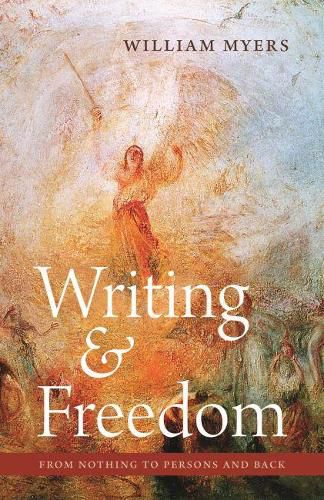Readings Newsletter
Become a Readings Member to make your shopping experience even easier.
Sign in or sign up for free!
You’re not far away from qualifying for FREE standard shipping within Australia
You’ve qualified for FREE standard shipping within Australia
The cart is loading…






Twelve essays in literary theory, philosophy, and religion - about atheism, freedom, and the Jesus thought experiment - connect, but don’t conclude. A recurring theme is the nothing at the heart of the deep atheism of George Eliot, Walter Pater, Oscar Wilde, Rudyard Kipling, and Thomas Hardy, who approach nothing with a directness lacking in their English-speaking philosophical contemporaries. How does being in the world - Thomas Nagel’s what-it’s-likeness - and how do values - Alasdair MacIntyre’s justice and misericordia - fare in the face of the mindless It that hardy finds at the heart of things? A pivotal essay compares the theism of Paul Ricoeur and the atheism of Daniel Dennett - the subtitle is a response to the latter’s latest book.
Writing and Freedom defends (a strong version of) free will as necessarily interpersonal: my freedom is nothing but my acceptance of yours. This is how Milton, Rossetti, and Dickinson treat their readers, and how scientists and philosophers ideally treat each other. Moreover, both nothing and freedom are fundamental to biblical and religious narratives (Mark and Newman). God, being out of all relation with the finite, cannot be known from the text of the world. Yet as nothing, God may be said to grant unconditional autonomy to his creatures, and therefore to be present in his absence. It is round nothing, therefore, that atheists and theists endlessly circulate. But that is what the deep atheism of European thinkers - Nietzsche, Freud, Lacan, and Zizek - say we all do anyway, however excitedly we pretend to ourselves that we don’t.
$9.00 standard shipping within Australia
FREE standard shipping within Australia for orders over $100.00
Express & International shipping calculated at checkout
Twelve essays in literary theory, philosophy, and religion - about atheism, freedom, and the Jesus thought experiment - connect, but don’t conclude. A recurring theme is the nothing at the heart of the deep atheism of George Eliot, Walter Pater, Oscar Wilde, Rudyard Kipling, and Thomas Hardy, who approach nothing with a directness lacking in their English-speaking philosophical contemporaries. How does being in the world - Thomas Nagel’s what-it’s-likeness - and how do values - Alasdair MacIntyre’s justice and misericordia - fare in the face of the mindless It that hardy finds at the heart of things? A pivotal essay compares the theism of Paul Ricoeur and the atheism of Daniel Dennett - the subtitle is a response to the latter’s latest book.
Writing and Freedom defends (a strong version of) free will as necessarily interpersonal: my freedom is nothing but my acceptance of yours. This is how Milton, Rossetti, and Dickinson treat their readers, and how scientists and philosophers ideally treat each other. Moreover, both nothing and freedom are fundamental to biblical and religious narratives (Mark and Newman). God, being out of all relation with the finite, cannot be known from the text of the world. Yet as nothing, God may be said to grant unconditional autonomy to his creatures, and therefore to be present in his absence. It is round nothing, therefore, that atheists and theists endlessly circulate. But that is what the deep atheism of European thinkers - Nietzsche, Freud, Lacan, and Zizek - say we all do anyway, however excitedly we pretend to ourselves that we don’t.